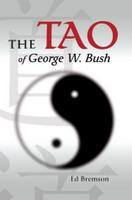Old Year, New YearApparently Brian McCartan of the Global Trends Project is a “glass half full” kind of guy. He has written an article, published 12/29/05 in
The Christian Science Monitor, entitled,
“War and Disasters Aside, 2005 Brought World Progress.” While he acknowledges all the gloomy news of 2005, he maintains that we should nonetheless feel encouraged because broader global trends indicate things are looking up. There are four main areas in which Brian thinks this progress is evident.
Income: he says that since 1960 more than one billion people “have pulled themselves out of the direst poverty.” Furthermore, globalization and industrialization “has raised incomes for billions of people.” (Which billions are we talking about? Bill Gates?)
Health and Education: the gap between life expectancies in the richest and poorest countries has narrowed by ten years since 1960. (I don’t know why he keeps choosing 1960 for his baseline year. I know the world’s population has doubled since then. I thought this was an article about 2005.)
Political and Civil Rights: human rights are on the rise and military dictatorships are on the decline. (I guess this is true. After all, we did liberate Iraq, get rid of one dictator, and only 30,000 Iraqis died in the process.)
Armed Conflict: there were 50 armed conflicts in 1990 and only 30 today. (Right, and only about 2200 American soldiers have died, not to mention all the wounded and maimed.)
Brian McCartan says that if we focus on “sensational short-term stories that impact relatively few people,” we tend to lose sight of the real progress made. Tell that to the 1.5 million people displaced by Katrina this year, and the American people who will have to pick up the tab for the $75 billion in damage. Tell that to the quarter-million+ killed by the Tsunami a year ago. Tell that to the families of those servicemen who died in Iraq. For them, and others, it’s been a bad year.
You know, Brian McCartan says we made progress in 2005, but I just don’t see it. Even his article barely touches on 2005. Most of it compares the present day with 1960, with emphasis on the latter. Well I suppose he has a point about that. I mean, no one had a cell phone in 1960, and no one had a personal computer. The twenty-first century may pretty much suck so far, but at least no one has been assassinated like they were in the 1960s. So I guess that’s progress. But I have a feeling that Brian McCartan, like many writers, has taken statistics and tried to use them to prove a point. His point is that 2005 wasn’t such a bad year. His arguments are not persuasive. Sure, this year was better, in some ways, than 1960, but the only people who would claim that 2005 was a really good year is the oil companies.
Now, before everyone starts screaming at me, let me say that I think 2005 was a pretty good year. A lot of positive things happened to me this year, for which I am very grateful. But when I say that 2005 was a pretty good year, I am voicing a purely personal, and subjective opinion. For many people all over the world 2005 was a horrible year. I don’t think we should devalue their suffering by engaging in an intellectual exercise trying to prove that, in the abstract, 2005 wasn’t so bad. People don’t live in the abstract. They don’t starve in the abstract, they don’t suffer in the abstract, and they don’t die in the abstract. Let us hope that 2006 is better, really better.
Tags:
politics,
war,
economy,
poverty,
health,
2005,
katrina,
Hurricane Katrina Still available
Still available
The Tao of George W. Bush A perfect Gift
Also check out my other books:
The Tao of Politics,
The Tao of Red States and Blue States,
The Tao of Love


